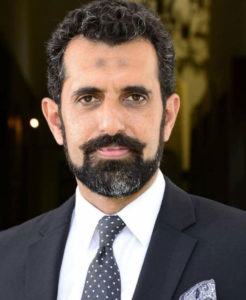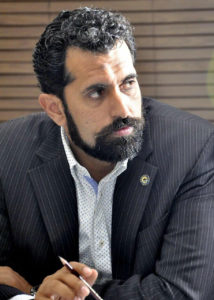Professionals like us must pass on to young engineers’ knowledge, experience‘ HVACR events are useful but fall short of the need of the time’
by Muhammad Salahuddin
I started my professional career in 1980 and then some 20 years later launched my own company, MIA associates, which is very much in the business of mechanical systems and HVAC since 2000. In all, I am in this field for over 36 years now and find nothing but to serve this profession for the rest of my life.
ER: What changes and transformations have you witnessed in this field in terms of technology improvements, product and business ethics throughout your long career?
HVAC business has improved at pretty good levels and the HVACR Society has also promoted many people but still I see a lacking. A bit more improvement is required like new entrants should have opportunity to progress which is denied. Then, the HVACR Society needs to do more like Ashre is doing at the international level leading its followers through its set of guidelines.
 Our senior engineers should not take the society as a advertising tool for themselves but instead facilitate new engineers to progress in the field. On the technology side, there are many innovations and transformations worldwide. In Pakistan, use of energy efficient equipment and maintaining such design is a challenge. Therefore, how the world is meeting energy crisis in its HVAC is to be learnt and such methods are to be applied here.
Our senior engineers should not take the society as a advertising tool for themselves but instead facilitate new engineers to progress in the field. On the technology side, there are many innovations and transformations worldwide. In Pakistan, use of energy efficient equipment and maintaining such design is a challenge. Therefore, how the world is meeting energy crisis in its HVAC is to be learnt and such methods are to be applied here.
ER: Environment has become one of the most important issues now. Do you observe any sensitization in your clients for opting environment-friendly design in HVACR?
Definitely! As I know the maintenance engineers hired by HVCAR employers and industrialists lately are aware on this subject. Let’s suppose we did not use wastage heat earlier but now it is being used for air-conditioning through absorption process mostly in textile industrial units. Also, our engineers have to set our own standards keeping in view the local environment through taking guidelines from global standards. Yet, I think we are pretty successful in making a local setting.
ER: What would you say about Pakistan HVACR Society’s role in implementation of building codes and designing of emergency efficiency in the country?
In the modern world, cities are planned properly keeping in view the requirement of its inhabitants whose number determine the needs that you require. Like, how much water is needed; power, roads, sewer and drainage system etc have to be determined.
In Karachi, nothing is planned. For example, a residential plot would turn into a commercial plaza and occupied by hundreds of people rather than original smaller number. Eventually, it affects everything. Resultantly, roads start to be inundated by sewerage water and in many areas drinking water is not found.
In sum, whatever was built in 40 years failed to be implemented and now the population has exceeded the limit. Thus, the provincial government should work on it more although it has started working and it is evident in the city which is appreciable.
ER: 25th HVACR Expo is being held in April and you have been attending these events, do you think it’s useful?
Yes, it is useful. However, its level is not up to the mark. It’s been many years that this event is being organized. Organizing an event once a year does not meet the objective. They host quite a few seminars also but they are nor affordable for young engineers. I suggest they should be invited free of cost so that they are prepared for this field.
CPEC It is just a road. I can’t understand if it can meet your industrial requirements. Nothing important is being set up here. This road passes through Pakistan connecting many countries in South Asia. At least now I am unable to understand. Our rulers however should know what is best for Pakistan. Unfortunately, the people who understand the situation are not in the government at present. Thus, the Pakistan Engineering Council should play its due role which it is not doing at the moment. It has to move ahead for promotion and progress of engineering industry in Pakistan so that we export our products.
I think we should invest in our young engineers in terms of passing on to them the knowledge and experience which we gained in many decades of our professional work in this field. This is imperative so that they move forward.








